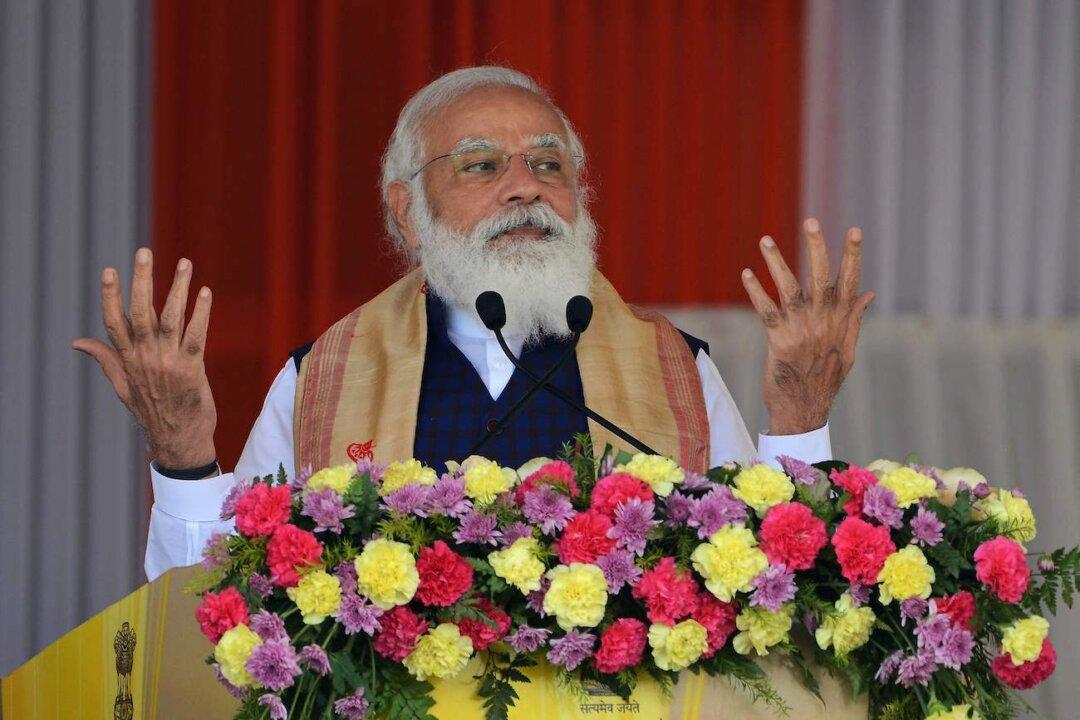India’s Prime Minister Narendra Modi said on March 10 that his party’s victory in four state elections demonstrated the people’s support for the ruling Bharatiya Janata Party’s (BJP) “pro-active governance.”
The BJP won four of the five states that held elections in February and March, including Uttar Pradesh, Uttarakhand, Goa, and Manipur. The Aam Aadmi Party (AAP), which governs the national capital territory of Delhi, swept victory in Punjab’s election.





